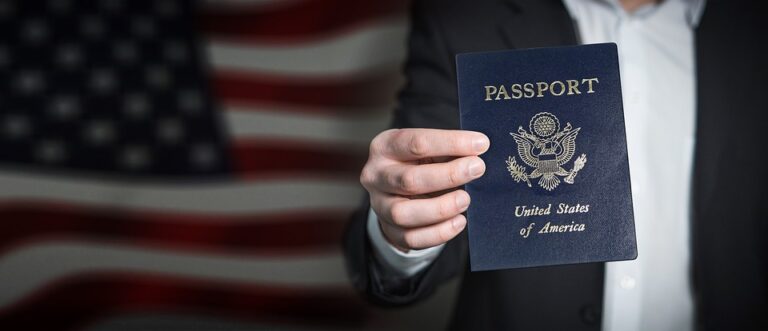Embassies and Consulates: Your Go-To Resource for Visa Requirements
Traveling internationally can be an exhilarating experience, but navigating the complexities of visa requirements can often feel overwhelming. Fortunately, embassies and consulates serve as invaluable resources to help travelers understand the necessary visa regulations specific to each country. In this article, we’ll explore how these diplomatic missions can guide you through the labyrinth of visa requirements to ensure a hassle-free journey.
Understanding Visa Requirements
Visa requirements vary significantly from one nation to another and often depend on your nationality, the purpose of your visit, and the duration of your stay. In 2023, it was reported that approximately 1.5 billion international tourist arrivals were recorded worldwide, highlighting the increasing need for clear and accessible visa information. As a traveler, building the right foundational knowledge about visa requirements can save you time, money, and frustrations.
Types of Visas: A Quick Overview
Before diving into where to obtain visa information, it’s essential to understand the different types of visas typically offered:
- Tourist Visa: For those visiting for leisure.
- Business Visa: For individuals conducting business or attending conferences.
- Student Visa: For those pursuing education abroad.
- Work Visa: For individuals seeking employment in a foreign country.
Each type of visa comes with its own set of criteria and documentation requirements, which is where embassies and consulates become your valuable allies in securing the correct visa.
Why Embassies and Consulates Are Your Best Resource
Local Expertise
Embassies and consulates not only serve their nationals abroad but also assist foreign travelers in understanding visa requirements. They provide:
- Updated Regulations: Visa rules can change frequently. Embassies and consulates offer the most current information, ensuring you have access to accurate details.
- Application Guidance: They can provide instructions on how to fill out application forms correctly and advise on the required documentation.
- Appointment Scheduling: Many countries require in-person interviews for visa applications. Embassies can expedite scheduling and provide important protocol.
For example, the U.S. embassy in Germany has reported an increase of 40% in visa applications in the last year, reflecting the growing interest in travel. Having direct access to the embassy’s resources not only facilitates the process but also assures you are aligned with current trends.
A Personal Touch
In complex cases, such as visa refusals or appeals, having direct communication with embassy staff can be essential. They can provide insights into potential reasons for rejections and the remedies available, enhancing your chances of a successful application.
Accessibility for Three Types of Travelers
-
Business Travelers: Need a business visa quickly? Embassies often have expedited processes for this demographic.
-
Tourists: Planning a vacation? Websites or dedicated help desks offer specifics on tourist visa requirements.
- Students: Moving abroad for studies? Embassies often have advisory sessions tailored for international students regarding visa processes.
Navigating the Visa Application Process
Steps to Follow:
- Visit the Official Embassy Website: Check the visa section for the latest visa requirements for entering the country you intend to visit.
- Gather Necessary Documents: This typically includes your passport, photographs, application forms, and any additional documents required.
- Make an Appointment: Many embassies require you to schedule a visit for application submission or interviews.
- Attend Your Appointment: Be prepared to answer questions honestly and accurately. Always double-check your paperwork to avoid unnecessary delays.
Visual Aids
Adding a couple of visual aids can enhance understanding. Here are suggestions for images to include in this article:
- Infographic of Visa Types – Visual representation of different types of visas and their purposes can clarify the process for readers. (Alt text: "Types of visa requirements")
- Flowchart of the Application Process – A step-by-step infographic showing how to navigate the visa application process effectively. (Alt text: "Visa application process flowchart")
Conclusion: Make Embassies and Consulates Your First Step
When planning your travel, visiting the appropriate embassy or consulate should be your first point of action to understand visa requirements. Whether it’s for tourism, business, or education, these diplomatic missions serve as key guides to ensure your travel goes smoothly.
If you want to learn more about essential travel tips and regulations, check out these articles on buzzo.live and buzzo.live/visa-guide. For additional insights and further reading on global travel trends, the World Tourism Organization provides comprehensive data and reports that could be beneficial.
Embassies and consulates are more than just bureaucratic institutions; they are your go-to resource for navigating the often complicated web of visa requirements, ensuring your international journey begins on the right foot. Safe travels!


